Oregon, known for its breathtaking natural landscapes and dedication to environmental conservation, has been at the forefront of sustainable initiatives. As part of its ongoing efforts to reduce plastic waste and protect its pristine environment, Oregon has implemented a comprehensive ban on single-use plastic bags.
The ban, which came into effect in [year], prohibits the use of plastic bags in most retail establishments across the state. This means that customers are encouraged to bring their own reusable bags or opt for alternatives such as paper bags or biodegradable options.
This progressive step towards a greener future reflects Oregon’s commitment to sustainability and responsible consumerism. By reducing the consumption of plastic bags, the state aims to minimize the negative impact of plastic waste on its ecosystems, wildlife, and overall environmental health.
Although the plastic bag ban may require an adjustment in shopping habits, it presents an opportunity for Oregonians to embrace more eco-friendly choices. By choosing reusable bags or other sustainable alternatives, individuals can play a crucial role in preserving Oregon’s natural beauty for future generations.
- Plastic Bag Ban in Oregon: All You Need to Know
- What is included in the ban?
- Are there any exceptions to the ban?
- What are the benefits of the ban?
- Overview of Plastic Bag Regulations in Oregon
- The Environmental Impact of Plastic Bags
- Banning Plastic Bags: the Benefits and Drawbacks
- The Benefits of Banning Plastic Bags
- The Drawbacks of Banning Plastic Bags
- Current Status of Plastic Bag Ban in Oregon
- Local Regulations
- Statewide Efforts
- Question-answer:
- Is there a ban on plastic bags in Oregon?
- When was the plastic bag ban implemented in Oregon?
- Which cities in Oregon have banned plastic bags?
- What are the alternatives to plastic bags in Oregon?
- What are the penalties for violating the plastic bag ban in Oregon?
- Is there a plastic bag ban in Oregon?
- When did the plastic bag ban go into effect in Oregon?
Plastic Bag Ban in Oregon: All You Need to Know
In an effort to reduce plastic waste and promote environmental sustainability, Oregon has implemented a statewide ban on single-use plastic bags. The ban applies to all retail establishments, including grocery stores, convenience stores, and restaurants.
What is included in the ban?
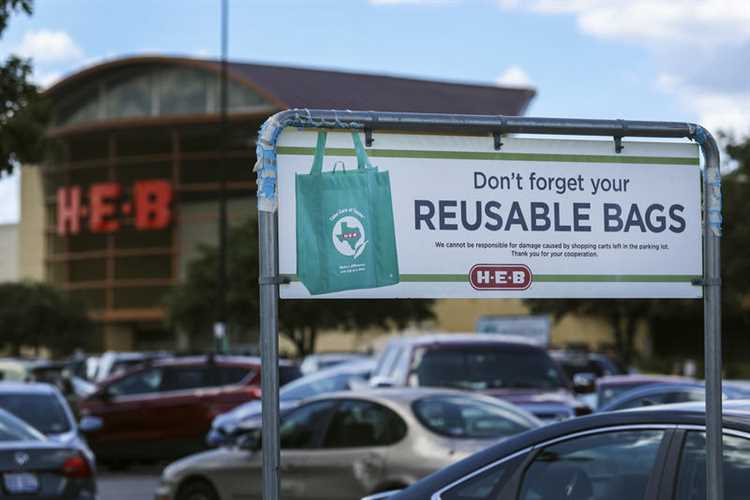
The ban prohibits the use of single-use plastic bags that are less than 4 mils thick. This includes both traditional plastic grocery bags and non-compostable plastic bags. Thin plastic bags used for bulk items, produce, and meat are also banned.
Are there any exceptions to the ban?
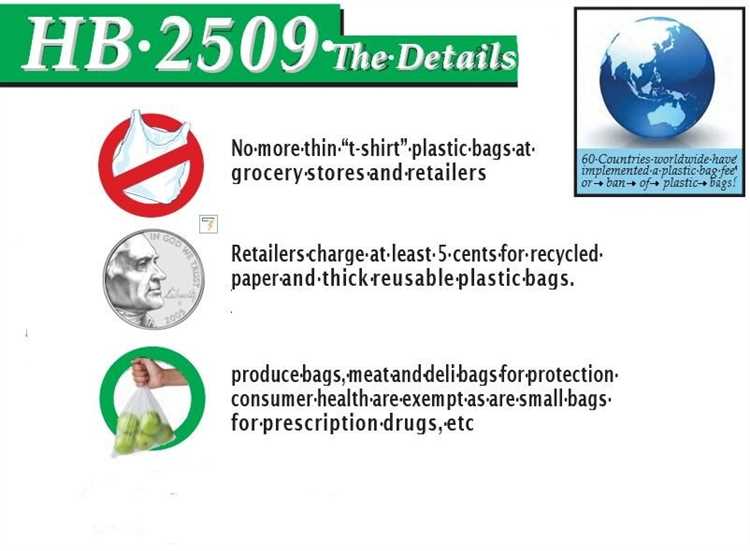
While the ban applies to most retail establishments, there are a few exceptions. Some businesses, such as pharmacies and pet supply stores, are allowed to provide plastic bags for specific items, such as prescription medications or live fish. Additionally, paper bags, reusable bags, and compostable plastic bags are still permitted, and customers can choose to use them instead of single-use plastic bags.
What are the benefits of the ban?
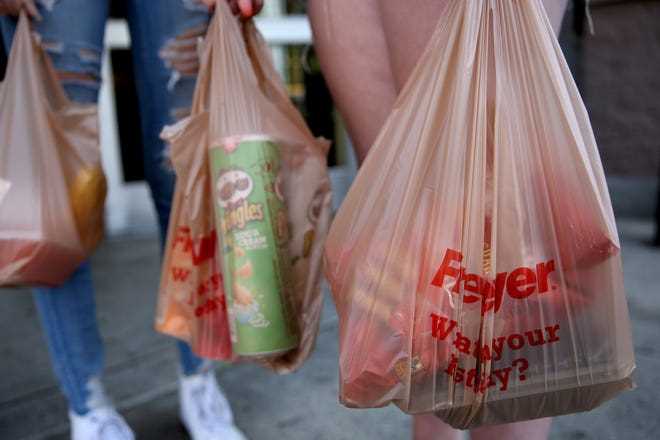
The plastic bag ban in Oregon aims to reduce plastic pollution and protect wildlife. By encouraging the use of reusable bags, the ban helps to conserve resources and minimize the amount of plastic waste that ends up in landfills and natural environments. The ban also promotes a shift towards sustainable practices and encourages consumers to make eco-friendly choices.
- Reduces plastic waste and pollution
- Protects wildlife and ecosystems
- Conserves resources
- Promotes eco-friendly practices
Overall, the plastic bag ban in Oregon is a significant step towards a more sustainable future and serves as a model for other states and countries looking to reduce their plastic footprint.
Overview of Plastic Bag Regulations in Oregon
Oregon has implemented several plastic bag regulations in an effort to reduce plastic waste and promote environmental sustainability. These regulations aim to discourage the use of single-use plastic bags and encourage the use of reusable alternatives.
One of the main regulations in Oregon is the statewide plastic bag ban. This ban, which went into effect in January 2020, prohibits certain retailers from providing single-use plastic bags to customers. Instead, customers are encouraged to bring their own reusable bags or purchase recycled paper bags for a small fee.
Under the statewide ban, there are certain exemptions. Small retailers, such as farmers’ markets and restaurants, are not required to comply with the ban. Additionally, plastic bags used for bulk items, produce, meat, and fish are still permitted to ensure food safety measures.
In addition to the statewide ban, there are several local ordinances in Oregon that have their own regulations regarding plastic bags. Cities like Portland, Eugene, and Corvallis have implemented their own plastic bag bans, often with more stringent requirements than the statewide ban. These local ordinances may have different exemptions or fees for paper bags.
Overall, Oregon is committed to reducing plastic waste and promoting sustainable practices. The plastic bag regulations in the state aim to encourage the use of reusable bags and reduce reliance on single-use plastic. By implementing these regulations, Oregon hopes to contribute to a cleaner and healthier environment for its residents and future generations.
The Environmental Impact of Plastic Bags
Plastic bags have a significant environmental impact that cannot be ignored. These bags are made from non-renewable resources, such as petroleum and natural gas, and their production contributes to the depletion of these precious resources.
Furthermore, plastic bags are not biodegradable. They can take hundreds of years to break down, and even then, they only fragment into smaller microplastics. These microplastics can cause serious harm to wildlife, as animals often mistake them for food, resulting in digestive blockages or suffocation.
In addition to the direct harm caused to wildlife, plastic bags also pose a threat to our ecosystems. When plastic bags are improperly disposed of, they can end up in waterways and oceans, contributing to plastic pollution. This pollution can have devastating effects on marine life, as well as on our own health when microplastics enter the food chain.
Plastic bags also contribute to greenhouse gas emissions. The production, transportation, and disposal of these bags release harmful gases, such as carbon dioxide, methane, and nitrous oxide, into the atmosphere. These greenhouse gases are a leading cause of global warming and climate change.
It is clear that plastic bags have a significant and negative impact on the environment. Taking steps to reduce our reliance on plastic bags and finding alternatives, such as reusable bags, is crucial in order to protect our planet and preserve its resources for future generations.
Banning Plastic Bags: the Benefits and Drawbacks
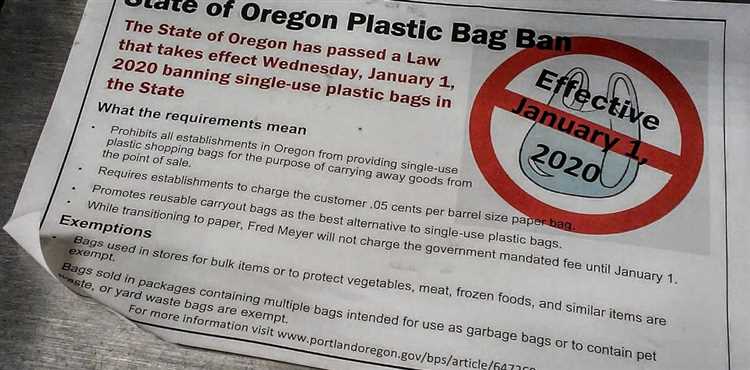
Plastic bags have become a significant environmental concern worldwide due to their harmful impacts on ecosystems, wildlife, and human health. As a result, many countries and cities have implemented or considered implementing bans on plastic bags as a way to reduce their usage and promote more sustainable alternatives. Oregon is one such place that has taken steps towards banning plastic bags.
The Benefits of Banning Plastic Bags
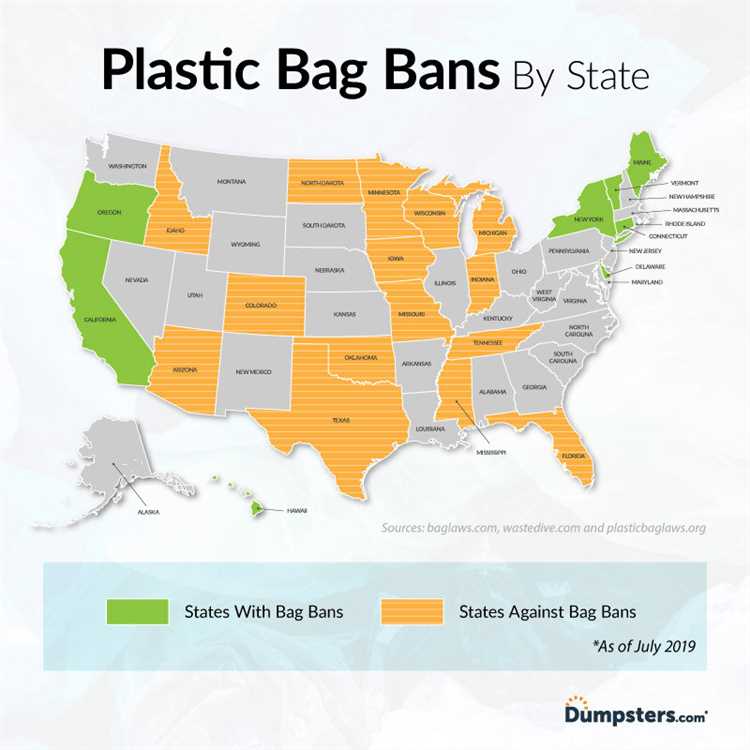
- Environmental Protection: Plastic bags take hundreds of years to decompose, filling up landfills and polluting water bodies. By banning plastic bags, Oregon can reduce its overall plastic waste and protect its natural resources.
- Wildlife Preservation: Plastic bags are often mistaken for food by marine animals and birds, leading to ingestion and entanglement. Banning plastic bags can help prevent unnecessary harm to wildlife and preserve ecosystems.
- Reduced Carbon Footprint: The production and disposal of plastic bags contribute to greenhouse gas emissions. By discouraging the use of plastic bags, Oregon can decrease its carbon footprint and mitigate climate change impacts.
- Promoting Sustainable Alternatives: Banning plastic bags encourages the use of reusable bags, such as cloth or canvas bags, which are more durable and eco-friendly. This shift towards sustainable alternatives can lead to a broader cultural change in consumer behavior.
The Drawbacks of Banning Plastic Bags
- Inconvenience for Consumers: Some argue that banning plastic bags can be inconvenient for consumers, as they may need to remember to bring their own bags when shopping. However, reusable bags are becoming increasingly common and accessible, making this concern more manageable.
- Potential Economic Impact: Plastic bag bans can have an economic impact on industries involved in bag production. However, this can also create opportunities for alternative bag manufacturers and promote local job growth.
- Transition Challenges: Implementing a plastic bag ban requires education, outreach, and coordination among various stakeholders. Overcoming these challenges and ensuring a smooth transition may require time and resources.
- Unintended Consequences: There is a possibility that the banning of plastic bags may lead to the increased use of other single-use plastic items, such as paper bags or plastic utensils. It is crucial to address these potential consequences through comprehensive waste management strategies.
Overall, the benefits of banning plastic bags, such as environmental protection and wildlife preservation, outweigh the potential drawbacks. By implementing and supporting alternative solutions, Oregon can continue to move towards a more sustainable future.
Current Status of Plastic Bag Ban in Oregon
Oregon has taken significant steps towards reducing the usage of single-use plastic bags. While there is no statewide ban on plastic bags in Oregon, several local jurisdictions have implemented their own regulations to limit their distribution.
Local Regulations
Many cities and counties in Oregon, including Portland, Eugene, Corvallis, Newport, and Ashland, have passed ordinances to restrict or ban single-use plastic bags. These ordinances generally apply to large retailers, grocery stores, and other establishments that distribute bags to customers at the point of sale.
Under these regulations, retailers are required to charge a fee for disposable paper bags, or encourage customers to bring their own reusable bags. The purpose of these regulations is to encourage consumers to switch to reusable bags and reduce the environmental impact of plastic bags.
Statewide Efforts
While there is no statewide ban, efforts have been made to introduce legislation that would apply to the entire state of Oregon. In 2021, a proposed bill called Senate Bill 582 aimed to ban single-use plastic bags and impose a fee on paper bags. However, the bill did not pass and therefore, there is no statewide ban in effect at this time.
Environmental groups, businesses, and concerned citizens continue to advocate for the passage of a statewide ban on plastic bags in Oregon. They argue that such a ban would help protect natural resources, reduce litter, and promote the use of more sustainable alternatives.
It is important for Oregon residents and visitors to be aware of the local regulations in their specific areas and to make a conscious effort to reduce their use of plastic bags. By utilizing reusable bags or opting for alternatives, such as paper bags or biodegradable options, individuals can contribute to the overall efforts of reducing plastic waste in the state.
Question-answer:
Is there a ban on plastic bags in Oregon?
Yes, there is a ban on single-use plastic bags in certain cities in Oregon.
When was the plastic bag ban implemented in Oregon?
The ban on plastic bags was implemented in various cities in Oregon at different times. It started with cities like Portland and Eugene, which implemented the ban in 2011. Other cities followed suit in the following years.
Which cities in Oregon have banned plastic bags?
Several cities in Oregon have banned plastic bags, including Portland, Eugene, Corvallis, Ashland, and Hillsboro.
What are the alternatives to plastic bags in Oregon?
There are several alternatives to plastic bags in Oregon. Many people use reusable cloth bags or paper bags as a more eco-friendly option. Some stores also provide biodegradable bags made from materials like cornstarch.
What are the penalties for violating the plastic bag ban in Oregon?
The penalties for violating the plastic bag ban in Oregon vary by city, but can include fines ranging from $100 to $500. Some cities also offer warnings for first-time offenders before issuing fines.
Is there a plastic bag ban in Oregon?
Yes, there is a plastic bag ban in Oregon. It was signed into law in 2019 and went into effect on January 1, 2020. The ban prohibits retail establishments from providing single-use plastic bags to customers at the point of sale. Instead, customers are encouraged to bring their own reusable bags or purchase bags that meet certain criteria, such as being made from recycled paper or being made from plastic that is at least 40% post-consumer recycled content.
When did the plastic bag ban go into effect in Oregon?
The plastic bag ban in Oregon went into effect on January 1, 2020. It was signed into law in 2019 in order to reduce the use of single-use plastic bags and encourage the use of reusable bags. Retail establishments are now prohibited from providing single-use plastic bags to customers at the point of sale.